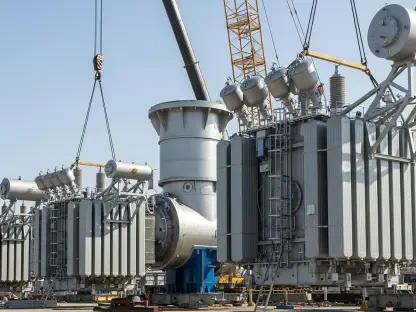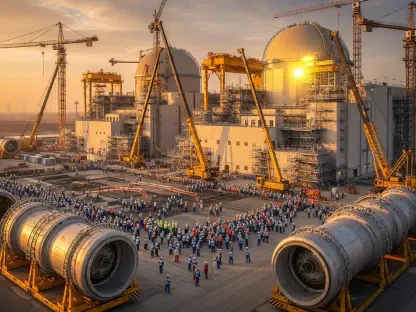As geopolitical tensions continue to shape global energy markets, the looming threat of secondary sanctions on Russian oil from former U.S. President Donald Trump fills market participants with uncertainty. This analysis unravels how these potential sanctions could influence market dynamics, project prices, and impact global economies, providing essential insights into the intricate fabric of international oil markets.
The Changing Tides in Energy Politics
Recent threats by Trump to sanction Russian oil exports are posited as strategic pressure points intended to yield political leverage in the ongoing conflicts involving Russia. This analysis underscores the importance of such measures within the broader economic context, illustrating their capacity to disrupt global energy supply chains. Understanding this backdrop reveals how geopolitical decisions steer market behavior.
With Russia positioned as the world’s third-largest oil producer, it significantly contributes to the global supply chain. The threat to impose secondary sanctions reframes conversations about supply reliability and market stability. As history evidences, attempts to constrict Russian oil exports ripple across economies worldwide, underlining a need to comprehend deeply ingrained market dependencies prior to implementing such drastic policies.
Investor Behavior and Market Resonance
Market Analysis: Assessing Trader Sentiments
Despite the weighty implications of Trump’s sanctions threat, oil markets reveal a notable degree of skepticism. Investors appear unconvinced of the threat’s translation into tangible policies. Historical precedents, where similar geopolitical rhetoric failed to enact concrete programs, add layers of caution to interpretations of current scenarios, suggesting that traders may prioritize macroeconomic stability above speculative posturing.
The Price Stability Equation: Challenges and Adaptations
The possibility of reduced Russian oil in global markets raises concerns about price stability and supply sufficiency. European markets’ previous pivots away from Russian crude underscore the challenges of replacing such significant supply sources. Ensuring stable pricing in this environment requires thoughtful strategic planning and agile responses to shifting supply dynamics, which remain paramount to maintaining economic equilibrium.
Strategic Nuances in Geopolitics
Analyzing the geopolitics further reveals layers of complexity in executing sanctions. Countries reliant on Russian imports, such as China, India, and Turkey, complicate the landscape. Employing tactics like “dark fleets” to circumvent current restrictions exemplifies Russia’s resilience in maintaining export flows, challenging presumptions that external pressures could easily disrupt its market operations. Market reactions remain a balancing act between anticipated sanctions and strategic market resilience.
Future Directions: Pathways of Energy Adaptation
Looking ahead, the trajectory of energy markets is closely intertwined with evolving geopolitical strategies. The ongoing transition toward renewable energies, alongside technological advancements, indicates a potential reshaping of global energy reliance. Even amid ongoing discussions surrounding sanctions, the future landscape appears poised for considerable transformation, introducing opportunities for diversification and innovation.
Emerging trends highlight strategic insights for market players to navigate the volatile energy sector. For businesses, diversifying energy portfolios may mitigate risks, while governments are tasked with balancing policy impacts against socio-economic outcomes. As consumers, understanding how global shifts influence local markets becomes vital. Market participants are urged to remain vigilant, strategically preparing for fluctuations driven by broader geopolitical movements.
Concluding Reflections: Navigating an Uncertain Energy Future
The analysis has illuminated the complexity surrounding Trump’s sanctions threat and its potential reverberations across global oil markets. It illustrated that, while sanctions could impose financial constraints on Russia, their implementation faced challenges due to broader economic repercussions. The narrative presented a situation of tenuous stability where oil markets, global dependencies, and political climates intertwine. Recognizing these dynamics guided stakeholders toward informed strategies, ensuring preparedness for any eventual geopolitical eventualities affecting the global energy landscape.









